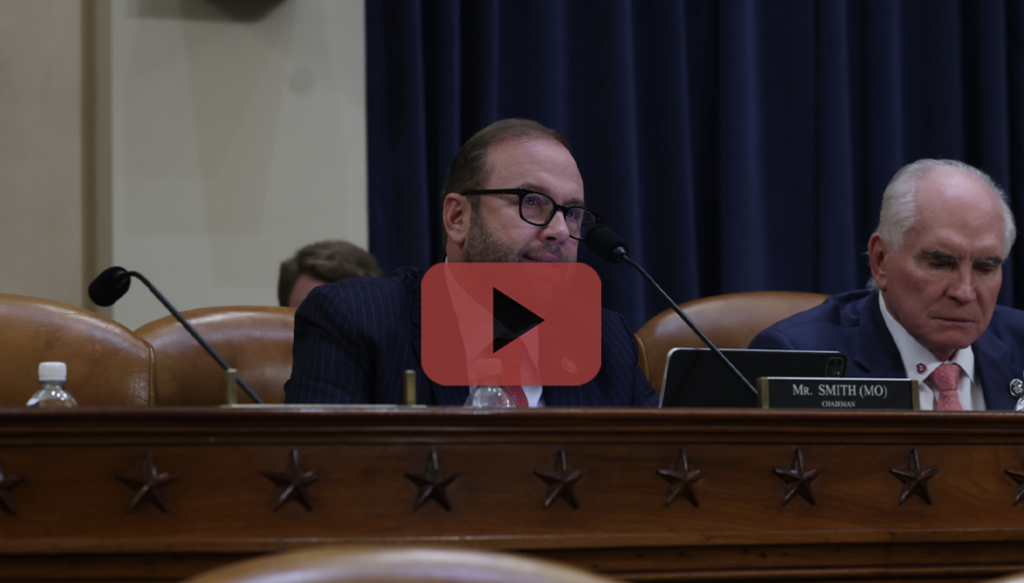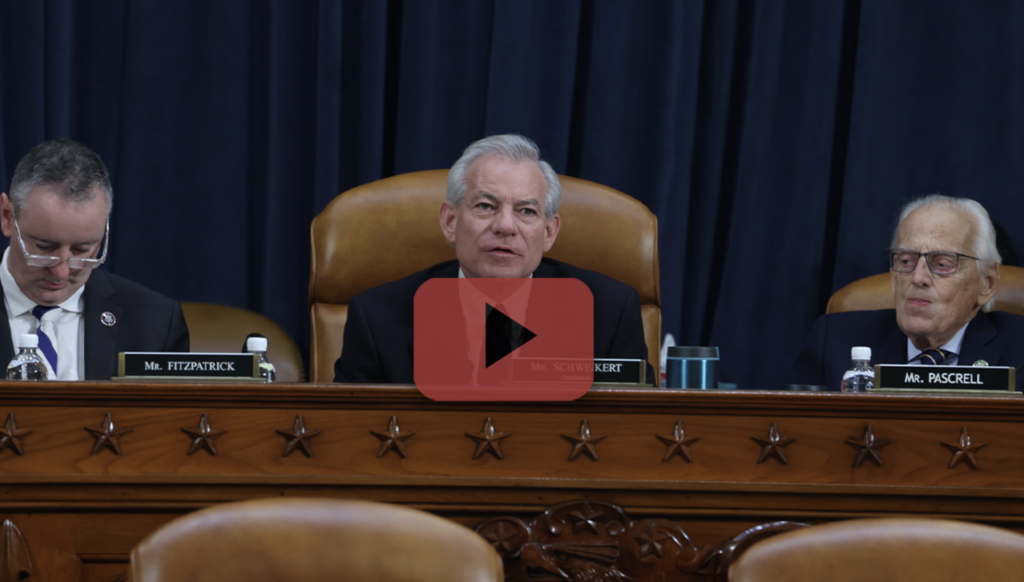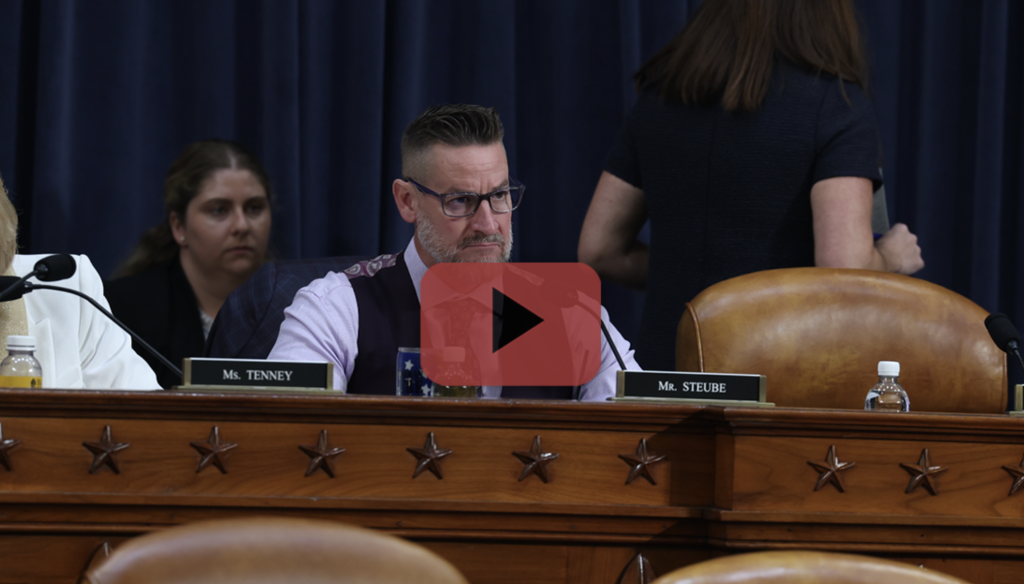Five Key Moments from Oversight Subcommittee Hearing on Pandemic Fraud
WASHINGTON – During the pandemic, fraudsters and international crime rings stole hundreds of billions of American tax dollars that were supposed to be spent on pandemic relief. The U.S. Government Accountability Office estimates that instances of fraud in the unemployment insurance program alone have cost as much as $135 billion while outside experts have estimated up to $400 billion worth of improper payments. At a Ways and Means Oversight Subcommittee hearing on pandemic fraud, members looked under the hood to learn exactly how criminals, including international criminal enterprises, managed to rob American taxpayers, and in some cases steal the identities of program beneficiaries.
To ensure that history does not repeat itself and fraud of such magnitude is prevented in the future, witnesses offered solutions to protect taxpayer dollars, including making fraud prevention a priority for federal agencies, protecting personal information, and using technology like artificial intelligence to fight fraud.
Concerningly, one witness warned that another theft of taxpayer dollars could already be happening with money from the Inflation Reduction Act and the Infrastructure Investment and Jobs Act, in which Congress included few fraud prevention measures for trillions of federal spending.
Federal Government Needs to Prevent Organized Criminal Enterprises from Stealing Taxpayer Money In The Future
Organized criminal enterprises were some of the ones behind the hundreds of billions in stolen pandemic benefits. There is some evidence that funds meant to help Americans through COVID-19 lockdowns were stolen by human traffickers and drug smugglers. Other links to violent crime have been found. As Chairman Jason Smith (MO-08) shared in his opening statement, when COVID-19 fraud was prosecuted, crimes like homicides also fell. To protect taxpayers’ wallets and their safety, Congress must find ways to ensure the greatest theft of taxpayer dollars never happens again.
Chairman Smith: “The type of criminals we are talking about are not just homegrown fraudsters or lone wolves looking to prey on unsuspecting beneficiaries. We’re talking about transnational, organized criminal enterprises. Moreover, we have found that in cities that were able to crack down on the UI [unemployment insurance] fraud they saw, violent crime in those same localities went down. Meaning these were more violent criminals committing this fraud. In Baltimore, they found that 60 percent of violent criminals were also committing some type of COVID-19 fraud. When they started prosecuting COVID-19 fraud cases, they saw a 20 percent reduction in homicides. I appreciate the fact that we have witnesses today from both within government and outside of government. With an estimated $280 billion in stolen COVID-19 relief funds, we need to be seeking input from as many experts as we can to bring as many perspectives as we can…”
“Static” Government Fraud Fighters Don’t Have The Data or Tools to Stop “Dynamic” International Crime Rings
Crime syndicates use data tools to steal personal information and commit fraud reaching hundreds of billions of dollars. As one witness told Oversight Subcommittee Chairman David Schweikert (AZ-01), criminals can buy Social Security numbers for as little as a quarter and turn around and use artificial intelligence to quickly claim Americans’ pandemic benefits. Meanwhile, federal fraud fighters are held back with outdated tools that cannot keep up with constantly evolving techniques to steal identities and taxpayer money.
Rep. Schweikert: “We’ve been tracking some crazy stories of [unemployment insurance] UI fraud that was converted to gift cards, that got moved into buying cars, and then the cars were shipped to North Africa, as a way to wash the money. Let’s say we had your data exchange, where do I break the fraud loop?”
Linda Miller, fraud prevention expert: “The data is the way to address this significant problem, which is identity theft. We saw unprecedented identity theft, because of the vast number of data breaches that we’ve experienced. Every single American’s information is available for sale on the dark web today. You can buy Social Security numbers for about 25 cents apiece now. They’ve gone down. They were about $1 apiece about a year ago…Most of these tools to effectively use stolen identities can be circumvented, especially in the age of generative AI. So now they’ve even got much more sophisticated tools than we did at the beginning of the pandemic that they’re using and exploiting right now. And so as a result…we’ve got a dynamic adversary, and we have very, very static processes that address them.”
“Fraud That’s Funding Our Adversaries”: Over 50 Percent of Pandemic Fraud Flowed to Adversarial Countries
Many of the international crime rings that stole billions in pandemic aid were affiliated with governments not friendly to the United States. These rings used Americans as money mules or used advanced technology to steal identities to launder money. While the primary victims of this fraud were taxpayers and Americans who had their identities stolen, Rep. Brian Fitzpatrick (PA-01) highlighted that fraud at such a scale hurts America’s national security.
Rep. Fitzpatrick: “American officials have blamed Chinese hackers for the breaches of OPM [U.S. Office of Personnel Management], Anthem Health, and Equifax. It’s clear that COVID fraud is not just a domestic issue. This is a matter of national security. So based on your experience working with the Pandemic Response Accountability Committee…what are the national security implications in your view of foreign, state-affiliated hackers stealing taxpayer funds that were intended for COVID relief benefit programs?”
Linda Miller, fraud prevention expert: “There’s some estimates that half of the pandemic unemployment assistance fraud went to adversarial nations. And that’s pretty problematic, when you consider that people when they think about fraud, they think, ‘Oh, it’s just a little rounding error.’…This was fraud that’s funding our adversaries. That’s what happened during the pandemic and that’s why there’s so much attention on it, which is valid.”
“Pandemic Fraud Is Effectively a Vertical for Many Criminal Organizations”
Sophisticated criminal organizations used pandemic fraud as a funding source for violent crime. For example, a Nigerian group stole funds meant to help small businesses and unemployment insurance to fund human trafficking and drug smuggling, among other illegal activities. In response to Rep. Greg Steube (FL-17), a witness shared another horrifying story of taxpayer dollars used to fund murder for hire.
Rep. Steube: “Ms. Simon, can you explain some cases in which COVID relief benefits were stolen and subsequently used for criminal activity?”
Amy Simon, unemployment insurance expert: “Pandemic fraud is effectively a vertical for many criminal organizations, and it is an income source. There was a recent DOJ indictment in Michigan, that was a sprawling scheme that was funded by multiple kinds of pandemic fraud, including unemployment insurance, that had murder for hire as one of its services. These are not run-of-the-mill, someone down the street claimed a few extra weeks that they shouldn’t have claimed.’ This is serious street crime.”
First Step to Fighting Fraud Is Making It a Priority for Federal and State Agencies
During the pandemic, federal and state agencies dropped basic fraud prevention guardrails, like data matching or consulting the federal “Do Not Pay” list. To protect taxpayer money and ensure beneficiaries do not have their benefits stolen, federal and state agencies must make preventing fraud a priority and ask the tough questions about the systems they have in place. One way to do that, as one witness shared with Rep. Claudia Tenney (NY-24), is for federal and state agencies to identify the loopholes and weaknesses in the benefits process that can be exploited by criminals.
Rep. Tenney: “What can we do in the next few months to curb the costs that we’re seeing to prevent this fraud?”
Amy Simon, unemployment insurance expert: “Ask hard, specific, clear questions of the New York Department of Labor, before a claimant applies: what tools do you have? What information are you getting? What are you doing with that information? As the claimant is applying: how are you verifying their identity? What do you do with high-risk identities? And then after they’ve applied, when you see suspicious activity: how do you handle that? What tools do you have in place? How many fraud investigators do you have? How many cases are going to prosecution? But those kinds of questions have not traditionally been asked to state departments of labor, certainly not by federal counterparts.”





